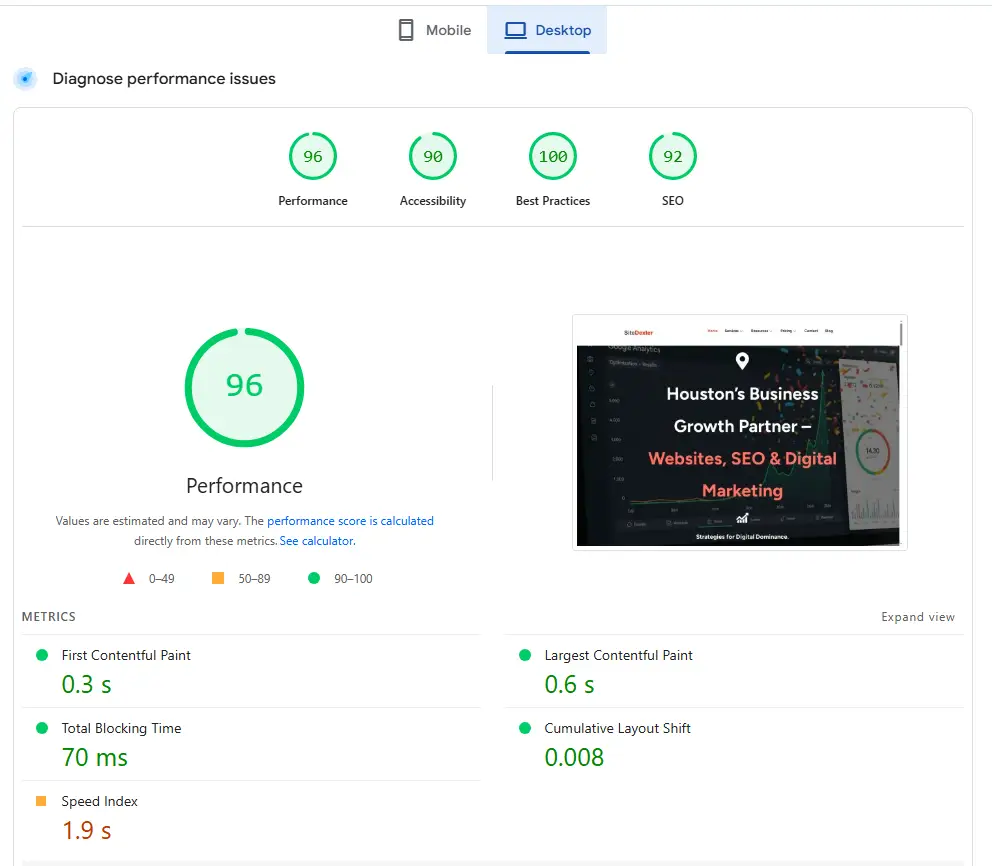Content gets you noticed. Technical infrastructure gets you ranked.
In the modern search landscape, your website isn’t just a brochure—it’s a complex piece of software. If your technical foundation is cracked, no amount of "good content" will help you outrank the competition. Site Dexter specializes in high-performance Technical SEO that ensures search engines can crawl, index, and understand your business with zero friction.
Google’s algorithm prioritizes user experience and efficiency. If your site is slow, poorly structured, or confusing to bots, you are effectively invisible. We fix the "under the hood" issues that are holding your rankings hostage.

Every millisecond costs you money. We optimize LCP, FID, and CLS to ensure a lightning-fast experience that satisfies both users and Google.
We build machine-readable JSON-LD data structures that help you win rich snippets and establish your business as a verified entity.
We clean up bloated code, fix 404 errors, and optimize your robots.txt to ensure Google's bots spend their time on your most important pages.
We don't just run a checklist; we perform a deep-dive forensic analysis of your site’s architecture. From ensuring mobile-first responsiveness to implementing secure HTTPS protocols and XML sitemap health, we cover the essentials that drive performance.
In a world where over 60% of searches happen on mobile, we ensure your site is perfectly responsive, accessible, and fast on every device.
Don't let technical debt sink your marketing ROI. Let Chris and the Site Dexter team perform a comprehensive technical audit today.
Audit My Technical Foundation